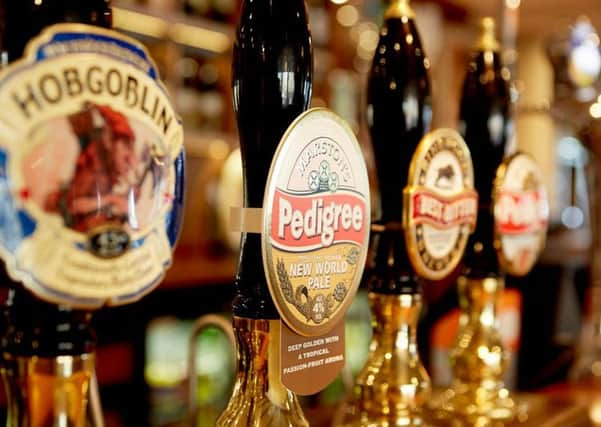Marston's plays down living wage impact as profits rise


Ralph Findlay, Marston’s chief executive, unveiling underlying interim pre-tax profits up 11.8 per cent at £33 million, said the group had anticipated that the minimum wage and living wage would converge and that the impact on the company would be “relatively modest”.
He said that the company had “no plans to review other staff benefits as a consequence of the introduction of the living wage (last month)”.
Advertisement
Hide AdAdvertisement
Hide AdCaffe Nero and Pret a Manger are among high street groups that have dispensed with some staff benefits as a result of the living wage.
But as Marston’s unveiled a 3 per cent lift in like-for-like sales, Findlay said: “Fundamentally we are a service business. The main engagement with customers is through people who work for us. Cutting benefits to fund the living wage would be the wrong thing to do.
“Our staff would be less satisfied in their work and why would we want that?”
Underlying revenues at Marston’s, which has 1,600 pubs including a dozen or so in Scotland, rose 11.5 per cent to £428.7m in the 26 weeks to 2 April.
Marston’s, whose Scottish outlets include The Steam Wheeler in Braehead, said average profit per pub across its managed, tenanted and franchised estate had risen 13 per cent to £105,000 as food becomes an increasing part of the mix.
Findlay said food sales across its estate, which includes the Pitcher & Piano chain, now account for 50 per cent of revenues compared with 30 per cent five years ago.
“Food has moved from a third to a half. I think the (eventual) natural balance will be 60 per cent food to 40 per cent non-food,” he added.
The chief executive also played down the possible impact of the new Pubs Code, to be introduced in the second half, on its brewing arm, whose earnings lifted 16 per cent after the £30m acquisition of brewer Thwaites.
Advertisement
Hide AdAdvertisement
Hide AdThe code will allow pub tenants and lessees in certain circumstances to ditch the beer tie and get their drinks from diverse sources.
Findlay said leased pubs accounted for 15 per cent of total group pub profits “and we are therefore not materially exposed to potential adverse consequences of the legislation”.
Marston’s interim dividend rises 4 per cent to 2.6p.
